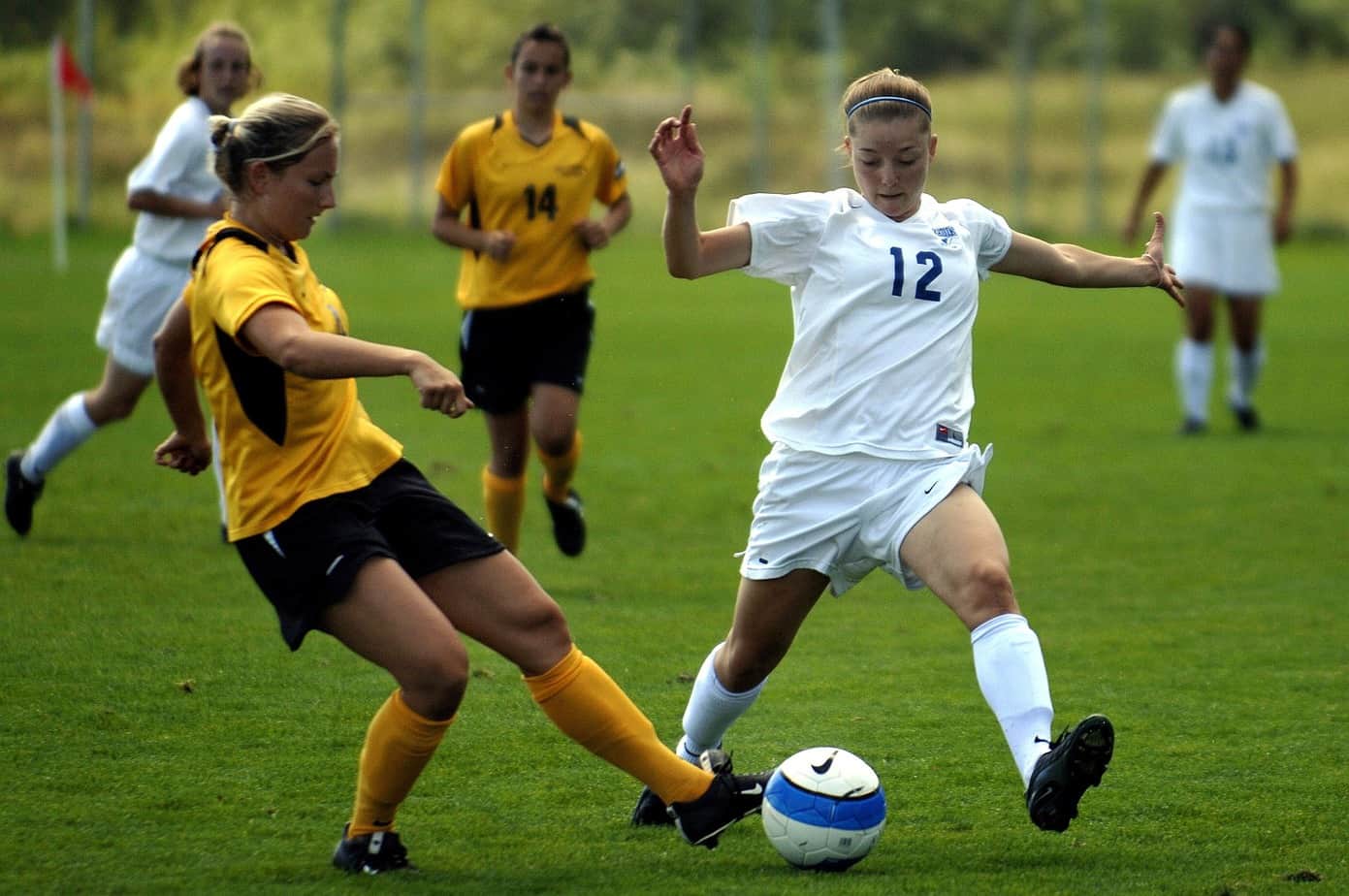Does aerobic fitness help to beat the heat?
Your weekly research review
- Background & Objective
- What They Did
- What They Found
- Practical Takeaways
- Reviewer’s Comments
- About the Reviewer
- Comments

Original study
Benjamin, Courteney L.; Hosokawa, Yuri; Curtis, Ryan M.; Schaefer, Daniel A.; Bergin, Reiley T.; Abegg, Marisa R.; Casa, Douglas J. Environmental Conditions, Preseason Fitness Levels, and Game Workload: Analysis of a Female NCAA DI National Championship Soccer Season, Journal of Strength and Conditioning Research: April 2020 – Volume 34 – Issue 4 – p 988-994 doi: 10.1519/JSC.0000000000003535
Click here for abstract
Background & Objective
Aerobic fitness and environmental conditions (e.g. air temperature and humidity) are factors that require a coach’s attention and adaptation strategies in order to maximise performance, especially with sports played outdoors (e.g. soccer).
Improvements in aerobic fitness increase resiliency to (high) workload, but does it also lessen the impact of environmental stress? This study set out to examine the individual impact, as well as, the collective relationship between environmental conditions and aerobic fitness on performance.
What They Did
The environmental conditions and ingame performance data for nineteen NCAA DI collegiate female soccer athletes across a season were collected. The yo-yo intermittent recovery test level 1 (YYIRTL1) was performed prior to the start of the season for a baseline assessment of physical work capacity. Ambient temperature (TA), relative humidity (RH), and wet-bulb globe temperature (WBGT) (see HERE) were the environmental conditions recorded at the beginning of each game.
Relative distance (TD), percentage of high-speed running distance (%HSD), and percentage of high metabolic load (% HML) for each athlete that played >60 min was assessed using GPS data. Environmental conditions and physical performance were reviewed for interaction, impact, and relationship.
What They Found
The primary findings of this study were:
⇒ High-risk environmental conditions (i.e. RH 50-75% and WBGT >25°C) did not impact the TD completed.
⇒ A negative relationship betweenWBGT and measures of %HSD and %HML, specifically, the highest values in speed and change of direction occurred at lower WBGT values.
⇒ A superior YYIRTL1 result (i.e. physical work capacity) possibly protected athletes from an increased WBGT by showing less detriment to %HSD, however, this had no bearing on TD or %HML.
⇒ Performance data appeared to be impacted by WBGT by variable levels, irrespective of an athlete’s physical work capacity.
Practical Takeaways
⇒ Heat acclimatisation can take 8-14 days and is the most important strategy to reduce the impact of environmental stress on performance. Progressively build to the volume or intensity of competition-specific training for two weeks before the event in expected environmental conditions.
⇒ A focus on fluid intake (i.e., hydration), before, during, and after competition will assist with the body’s thermoregulation process and help optimise physiological performance capabilities. This strategy should be implemented consistently throughout training days.
⇒ Rehydration post-game, as well as cooling strategies (e.g. coldwater immersion or ingesting an icy fluid), can assist in reducing environmental heat stress and improve recovery rate between competitions.
Reviewer’s Comments
“Performance is multi-factorial and there are countless influencers that interplay to impact performance. Some of which are outside of the coaches and athletes control (e.g., environmental conditions or gender). Focusing on what can be controlled is the most effective strategy to prepare for tolerance and maximise performance. Athletes can optimise their overall preparedness and daily readiness by training in conditions specific to the competitive environment, with proper management of both the volumes and intensities anticipated, consuming adequate calories and fluids, and getting sufficient sleep (both quantity and quality) on a regular basis.
In the end, all these efforts are not enough to eliminate the physiological impact of an uncontrollable factor like high environmental stress. Modifying tactical strategies during competition (e.g., pacing) or increasing in-game substitutions can help to sustain an athlete’s physical abilities across a game with high environmental stress.”
Want to learn more?
Then check these out…
Read this article
Read this article
Listen to this podcast
Read this infographic
Want more research reviews like this?
Every coach understands the importance of staying up-to-date with the latest sports performance research like this, but none have the time, energy, or even enjoys spending hours upon hours searching through PubMed and other academic journals. Instead, your precious time is better-spent coaching, programming, and managing all the other more important aspects of your job.
The solution…
The Performance Digest
The Performance Digest is a monthly summary of the latest sports performance research reviewed by our team of hand-selected experts. We sift through the 1,000+ studies published in the realms of sports performance every, single month and review only those which are important to you. Each monthly issues contains 19 research reviews in all of the following disciplines:
This comprehensive topic base ensures you’re constantly expanding your knowledge and accelerating your career as quickly as humanly possible. The reviews are also hyper-focused, 1-page summaries, meaning there’s no jargon or wasted time. We cut right to the chase and tell you what you need to know so you can get back to coaching.
Join the thousands of other coaches who read it every, single month. Click here to get instant access for free…

